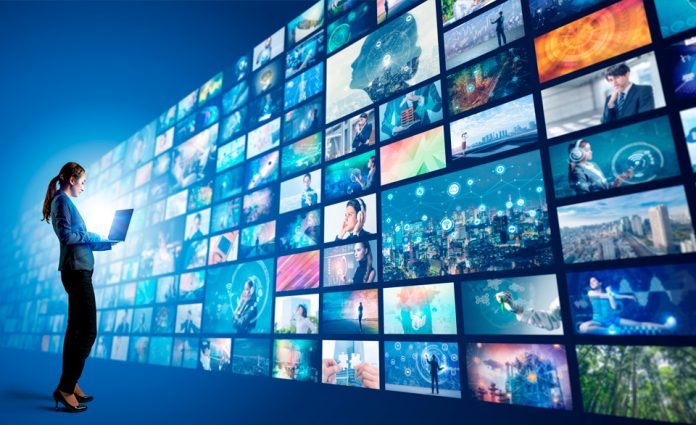This article has been written by Rishabh Singh, pursuing the Executive Certificate Course in Media and Entertainment Law: Contracts, Licensing and Regulations from LawSikho.
Table of Contents
Introduction
The coronavirus outbreak has caused widespread concern and monetary adversity for customers, businesses and communities across the globe. Like every other historical emergency, COVID-19 has also tinted the prominence of media in community life. In spite of the abridged advertisement profits and need for fresh content, linear media saw an unexpected surge in viewership. As equity market have reflected this kind of impact, with the falling average price of media industry up to 40 % from peak to trough, it’s according to KPMG analysis.
Media Organizations must rethink how they will work now; also understand that while most businesses are opening to pick themselves up after this unexpected crisis, in spite of the reeducation in advertisement revenue and be short of new content, linear media see a sudden rush in viewership .but still digital media witness increased subscriptions. Netflix, for example, got 16 million new subscribers in the lockdown. As the new routine also has changed from the previous way of consumption patterns of the audiences, the public explores new medium & genre and diverse types of content that distorted their choices and utilization patterns.
What are the major issues that the media and entertainment industry is facing in the current times?
As Social distancing guidelines led to the cancellation of live events all over the country at stadiums, arena, theatres, resorts, another venue, ensuing in lost revenues from sales, merchandising, advertising and promotions. Cancellations have an effect on not just the main performer or team, but also arena staff, business in close immediacy and humanity at large in terms of economic impact. Postponement of movie and television making causes a delay in release dates. Going digital, an inexperienced format that could negatively impact ad sales.
New state and local tax implications arise on media staff who are at the moment working remotely as a result of the crisis. Tax compliance operations could lag as newly remote workers lack timely access to information. The unexpected or prolonged economic decline will likely cause companies to consider considerable budget cuts to reduce flexible spending. Online education and social distancing will make a demand for goods and services delivered by this industry.
The crisis underscores the need for a flexible, resilient business model, as well as better focus on cash flow forecasting and impact with supply chain and profitable channel associates. Company evaluation might become more striking for acquisition by cash Rich Corporation that has been sitting on the sideline with a target in mind. Fan energy lag, as delayed events don’t generate a similar interest they originally have.
The emergency could basically change how some sports are viewed, making studio events with empty venues.
How is the entertainment industry tackling the demand for content in the absence of in-person events?
Previously, digital engineering was restricted to the far end of the value chain in broadcast and consumption. The greater than before indoor presence after Coronavirus has now highlighted the want for digital across the entire media value chain.
Emerging trends and challenges shaping the future of the media industry, as streaming services and improved experience are the outcomes of digital business during broadcast and consumption. Though, with the COVID crisis, the need to create more content remotely, bunch of content from different sources and personalize the proposal for the end-users, has emphasized the significance of digital engineering at the start of the value chain for content formation, aggregation, and distribution.
The COVID-19 lockdown spawns the requirement to generate content from anywhere without the limits of location. Content enrichment, editing, and agreement which required a multifaceted workflow can now be done slightly with ease. High-end digital creations can come along with to capture and edit content, permit artists to create content from their homes. The need of the hour is to have innovative and spontaneous digital products which can facilitate performers, designers and editors. to collaborate distantly and convey quality content. Different Studios are at present in the procedure of producing film content with the help of its video game engine.
Stopping the progress of productions resulted in the lack of new content and made newscasters and production houses work on the policy of reusing old content or media from another geography. Like the record-breaking viewership in the reruns of TV shows on Ramayana and Mahabharata, in India showcase, that good quality content can never be old. Each episode of Ramayana had an average viewership of 42.6 million people. However, such inheritance content should be digitized to make it effective in the new format and mediums. Digitizing legacy content is a compound process automatic digital processing is a good thing for those looking to repurpose legacy content.
Broadcasters also realise that movies in diverse languages could be dubbed and aired as it would create new content for the viewers in a different location. OTT competitors in the Middle East work on this model and cater to its spectators by translating Indian content into Arabic. Synchronized dubbing and editing of the content physically or in bits and pieces is hard. Artificial Intelligence & machine learning can make this procedure smoother, quicker, and mistake-free.
Content creators to reorganize and redesign their content development, improvement, and sharing strategy. This created a new ecology that is driven by supplies content as a service. Therefore allowing Media Corporation to store content in a form with the aim is to simple to find out, repurpose, alter, and distribute. All media companies need to reengineer syndicate content to other partners.
Assisted realism and virtual reality have been on the boundaries for a while now, and have been used in partial mediums like gaming or advertising. The extensive lockdown and limited travel have created a space for this medium to travel around newer dimensions. Using VR for travel videos provides immersive understanding in travel or virtual social movie binging with associates and family. VR is leveraged to hold virtual concerts. Wave has featured more than 20 artists and transformed them into digital avatars in real-time.
Long term impact and what further steps should be considered?
- Communicate evidently and clearly with every group of stakeholder, fans, workers, media, sponsors, after formating their priority.
- Find out alternative ways to connect with stakeholders, such as virtual concerts or for live events broadcast online. connect players and sports fans via social media.
- Observe public emotion across key marketplace and demographics. As far as possible,, follow social distancing guidelines while being open for business.
- Decide what types of events are enclosed by insurance and the type of coverage in the present situation. Be aware of significant variables driving insurance coverage and possible recoverability for cancelled events.
- Identify opportunities to minimize monetary exposure and maximize recovery.
- Stay well-versed throughout the claim recovery process.
- Organize to negotiate and reach a settlement on claim or agreement dispute.
- Plan for operating models that hold up remote staff as an outcome of this huge scale alter to remote work.
- Prioritize cybercafé remote equipment capabilities to transition workers to remote work.
- Keep up productivity by providing tools for virtual communication, teamwork and documents for remote workers.
- Verify the safety of employees who may need to continue functioning onsite by continually updating and communicating risk-mitigation guidelines.
- Limit the monetary impact of the disturbance by activating a crisis response plan. Consider OTT versus windowing, preparation of ahead to meet probable resurgent demand, post-crisis. Serve up digital content in formats.
- Communicate present and potential future impact to shareholders. Seek opportunities to create a positive impact in the public by forging relations and underscoring your values and reason to build your brand Monitor fan sentiment intimately to be organized for the recovery.
Conclusion
The revival phase will likely require Media & Entertainment companies to have the willpower to confidently move ahead. But to thrive companies may need to break old methods and build new ones that sustain a return to expansion. a lot of content creators are celebrated for their rich inheritance and association to a romanticized period. This crisis is a chance to preserve the best of the old-time while moving forward to imagine and create a transformed industry. Reopening of venues will probably be a positive signal for the industry and for society in general, things will not go back finally to normal. All Media & Entertainment companies should make sure that their preparation and longer-term strategy accounts for an extended period of alteration.
Corporations that depend on physical experience and spaces will likely be challenged to reinvent their performance and content to make sure they are more agile and prepared when the next crisis, in the long run, comes, Doing so can unlock new opportunity, ability and understanding that can increase revenues while building resiliency.
Many M&E organizations react and recover, they are being required to build a new plane flying the old one. Leaders should address those and decide how to create a new opportunity in which M&E companies can develop and flourish. The chance to rebuild such a full-grown industry is rare. M&E leaders must seize the opportunity.
Each crisis brings forth new mediums or technologies in the media industry to provide to the need for the condition. COVID-19 has put the limelight on the need for a digitally re-engineered media value chain, a public aware advice engine, and open & instinctive content as a service ecosystem. Various of these styles will become a part of the new normal in the post-COVID period if our media industry is ready to develop through these storms and adapt to the new prospect.
Students of Lawsikho courses regularly produce writing assignments and work on practical exercises as a part of their coursework and develop themselves in real-life practical skill.
LawSikho has created a telegram group for exchanging legal knowledge, referrals and various opportunities. You can click on this link and join:
Follow us on Instagram and subscribe to our YouTube channel for more amazing legal content.
 Serato DJ Crack 2025Serato DJ PRO Crack
Serato DJ Crack 2025Serato DJ PRO Crack











 Allow notifications
Allow notifications


